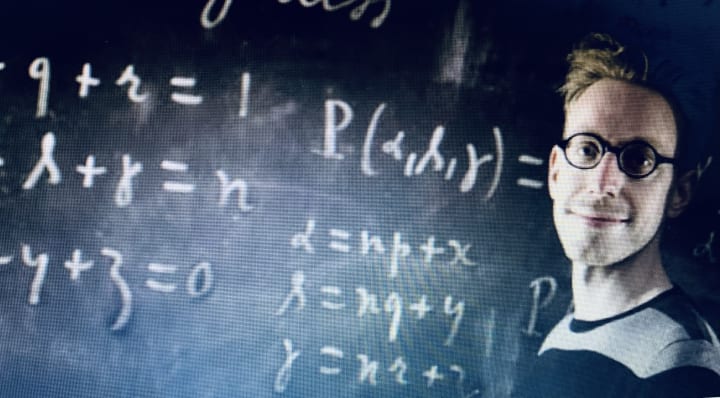The argument for how the world began and where is it heading. Can mankind really solve the mystery of the universe?
Challenging Creationism v The Big Bang
A profound quote attributed to Galileo Galilei, says; “You cannot teach a man anything; you can only help him find it within himself”. This emphasizes the idea that true understanding comes from self-discovery rather than being taught by someone else. It’s a principle that resonates with the Socratic method of teaching, which is based on guiding someone to their own realizations rather than simply providing them with facts.
On this premise should the acceptance of both the basis of The Big Bang and Creationism be viewed.
Where did the universe begin, and where will it end.
Did the universe come into being from nothing?
Can the origin of the universe be understood through science alone, without the need for a God?
Insight from some Great scientist minds
Albert Einstein, Stephen Hawking and Galileo...were among some of the most influential scientists before and during our time. They were instrumental in developing theories that unravel the universe and were committed to making science accessible to all.
Within our time, there was Hawking, who died in 2018 at the age of 76 from complications of a degenerative motor disease called amyotrophic lateral sclerosis, a disease he was diagnosed with at age 22. However, the contribution of his theories will remain in science for many decades to come. May his soul find eternal rest.

To answer fundamental questions about the universe, Hawking used Albert Einstein's general theory of relativity as a basis to answer questions like:
Where did time and space begin? Concluding that the universe had a beginning in the past. The Hawking-Penrose singularity theorem states that the origin of space-time began with the Big Bang.
The idea of the origin of everything:
Using Einstein's theories and experiments carried out at the European Council for Nuclear Research, which can recreate the conditions of the early universe, they claim to have more or less proven that at a certain point in the past, space-time disappeared: meaning that this would have been precisely the origin of everything!
Is the idea of the Big Bang still a mystery and did it have a cause?
To clarify the question, Thomas Hertog, one of Hawking's key collaborators quoted physicist Georges Lemaitre: "Instead of invoking a creator as the cause of the Big Bang, Lemaitre left the mystery open. He said: 'It is possible that in discovering the Big Bang we have found something that has no cause'.
Where does space-time end?
Now the question is where it all ends. According to Hawking, the answer lies in black holes, a place where space-time disappears.
What are black holes?

These areas of space are subject to gravitational forces so strong that nothing can escape them, not even light. It's like the Big Bang in reverse.
Is the universe finite?
According to the Hartle-Hawking conjecture, scientists postulated that the universe was finite but had moving and unlimited boundaries.
British mathematician Roger Penrose told the BBC: "While other researchers struggled to describe a brief moment in the life of a molecule using quantum laws, Hawking (along with physicist James Hartle) showed that it was possible to capture the history of the entire universe in a single mathematical equation."
The evolving laws of physics:
The last theory that Hawking developed in collaboration with Hertog shortly before his death (2018) was influenced by biology. It proposed a universe in constant evolution, where the fundamental laws are not fixed but constantly changing.
The laws of physics at the time of the creation of the universe
Regarding the finiteness of the universe, Hertog told National Geographic: "In our [Hawkings and Hertog's] theory, the universe evolves in time, emerging from a timeless state in the Big Bang".
A simpler mathematical model

By eliminating the concept of time in this extensive mathematical model, which is intended to explain the physical conditions during the formation of the universe, it becomes simpler. According to Hertog, it would be possible to prove or disprove the theory in a tangible future (National Geographic).
Making science Accessible
Despite the complexity of the topics he explored, Hawking was genuinely concerned that his cosmology reach the general public. His book "A Brief History of Time" has sold more than 10 million copies. (BBC reports).
Hawking had a comprehensive vision of physics:
In an interview with the New York Times, he said, "I told my literary agent that I wanted my book on airport bookstalls". For many, Hawking's great genius was that he had a comprehensive overview of various areas of physics, such as cosmology, quantum physics and gravity. ~~~~
Creationism vs. the Big Bang: A Perspective
The debate between creationism and the Big Bang theory has long fascinated both religious and scientific communities. We should be open to exploring these contrasting viewpoints:
Creationism:
Definition: Creationism is the belief that the universe and all life were intentionally created by a divine being (often referred to as God).
Biblical Account: For Jews and Christians, the opening chapters of Genesis in the Bible provide insights into creation. There are two distinct accounts:
Genesis 1: A poetic description of God’s ordering of creation, emphasizing the separation of light from darkness, land from waters, and the creation of humankind in God’s image. It celebrates God’s provision for abundant life.
Genesis 2: A more intimate narrative that focuses on humankind’s role as caretakers of creation. Humans are made from the earth’s dust and given life by divine breath. The account also introduces the concept of free will and moral choices.
Purpose: These accounts serve as a foundation for understanding life and the world, emphasizing gratitude for God’s provision.
The Big Bang Theory:
Definition: The Big Bang theory proposes that the universe originated from an incredibly dense and hot state approximately 13.8 billion years ago. It expanded rapidly, leading to the formation of galaxies, stars, and planets.
Scientific Evidence: Observations of cosmic microwave background radiation, the abundance of light elements, and the redshift of distant galaxies support the Big Bang model.
How the Big Ban Theory aligns with Creationism:
Surprisingly, the Big Bang theory aligns with the concept of creation ex nihilo (creation from nothing). Genesis describes the universe’s emergence from a ball of energy and light—similar to the initial singularity proposed by the Big Bang Theory.
Not in Conflict: Belief in a Creator God and acceptance of the Big Bang theory need not be mutually exclusive. Many scientists, including religious ones, find harmony between faith and scientific understanding.
Common Misconceptions:
Evolution vs. Creation: While some assume that evolution negates belief in a Creator, this need not be the case. Christians can appreciate both the natural processes of evolution and the idea of divine creation.
The Second Law of Thermodynamics:
Creationists sometimes argue that the Second Law of Thermodynamics contradicts evolution. However, this law applies to closed systems, and living organisms are not closed systems. Their order and complexity do not violate thermodynamics.
Thermodynamics is a branch of physics that deals with the relationships between heat, work, temperature, and energy. It provides a framework for understanding how these quantities interact and influence each other.
Four Laws of Thermodynamics:
These fundamental principles govern the behavior of energy and matter:
1. Zeroth Law of Thermodynamics: If two systems are each in thermal equilibrium with a third system, they are in thermal equilibrium with each other.
2. First Law of Thermodynamics (Law of Energy Conservation): Energy cannot be created or destroyed; it can only change forms.
3. Second Law of Thermodynamics: The total entropy (a measure of disorder) of an isolated system always increases over time.
4. Third Law of Thermodynamics: As the temperature approaches absolute zero, the entropy of a pure crystalline substance approaches zero.
In the end, the tension between creationism and the Big Bang theory need not be adversarial. Both perspectives offer valuable insights, and individuals can explore the wonders of the universe while maintaining their faith. 🌌🌿🙏
...................................................
Excerpts from:
The Daily Digest
National Geographic
BBC
Story by Zeleb.es
Bing AI
About the Creator
Novel Allen
Every new day is a blank slate. Write something new.







Comments (6)
The question about the origin of everything may remain a philosophical inquiry for a very long time. Particularly regarding the Big Bang, there are scientists who point that it might not is a true beginning and are looking for ways to uncover traces of a pre-Big Bang era. However, the Big Bang theory, or rather hypotheses (since it cannot be experimentally confirmed), is currently the most well-supported explanation based on evidence and observations. A significant disparity exists between scientists and creationists, despite the latter sometimes self-identifying as scientists. A scientist, whether religious or not, evaluates evidence objectively. If observations contradict their beliefs, they are willing to adjust their beliefs accordingly. While some scientists may initially resist changing their views, most eventually embrace the evidence. In contrast, creationists reject established facts. Now I’m reading “The Greatest Show on Earth” from Richard Dawkins, he highlights numerous instances where creationists outright deny well-established facts, instead relying on misconceptions or selective understanding. I've encountered people who deny Einstein's theory in discussions. As a physicist, I've presented a lot of evidence, observations, experiments, and practical applications supporting Einstein's theory (such as GPS), yet they persist in claiming it's incorrect, often citing unreliable sources like YouTube videos. For instance, when a group of scientists reported achieving cold fusion, I was hopeful. However, when subsequent attempts by other scientists failed to reproduce the results, it became evident that errors had occurred in the initial experiment. People eventually accepted this based on observable evidence rather than stubbornly clinging to the initial claims. While I referenced Dawkins, it's essential to note that his opinions aren't infallible truths. Critical thinking and evaluation of evidence are on the first place. If I paraphrase Jeremiah (17): “Cursed is the one who trusts in authorities. But blessed is the one who trusts in the Observations.” Sorry, it became too long. May it was better to write it as a separate post
As a psychic, I see & communicate with things from the universe/outside universe, I understand scientists do research, but I still disagree that scientists will find more than what we know! 😅😂😂
I didnt know about this idea of physics as part of an evolving, dynamic universe and therefore subject to change. INteresting.
Well-wrought! Newton wrote more religious/philosophical than scientific treatises, though of course his works on physics will always remain more relevant on this terrestrial plane, being more empirically accessible.
Lots of food for thought, creationism is pure laziness, "we don't understand it so god did it", and followers of religion do see the benefits of science, and scientists do not negate the possible existence of god, just that there is no tangible proff. Excellent work and no doubt a Top Story
Hey Momma, Catherine has been trying to contact you so I sent your Facebook to her. Please check your DM when you're free. Now back to this topic, I really wanna know what's inside a blackhole. Why can't they send in a camera tied to a rope or something? As for the creation of everything, at this point in my life, I don't care how anything came to be 🤣🤣🤣🤣🤣🤣